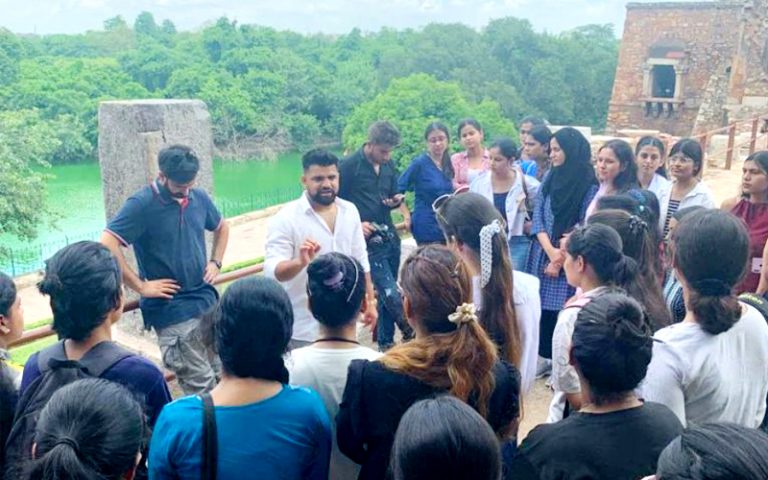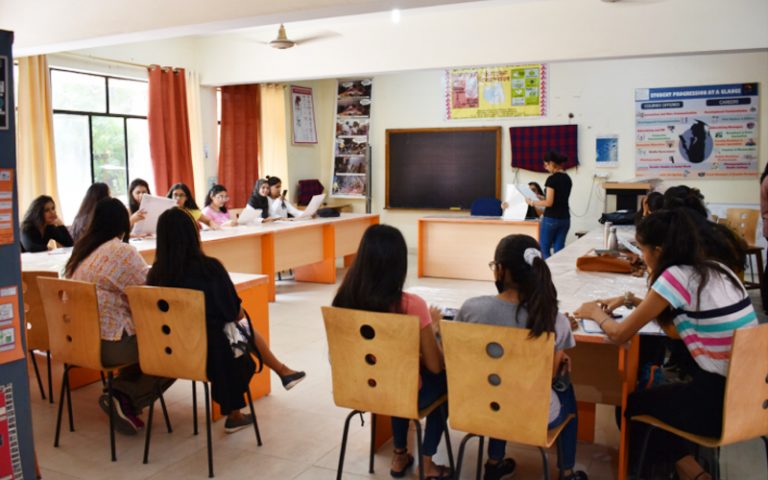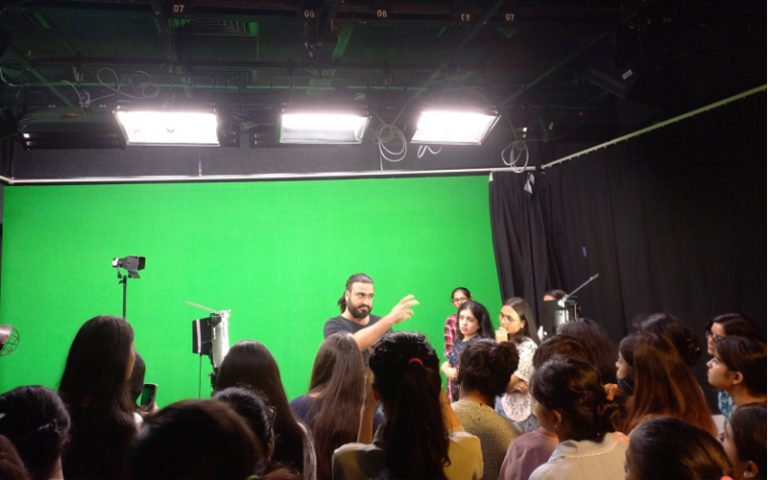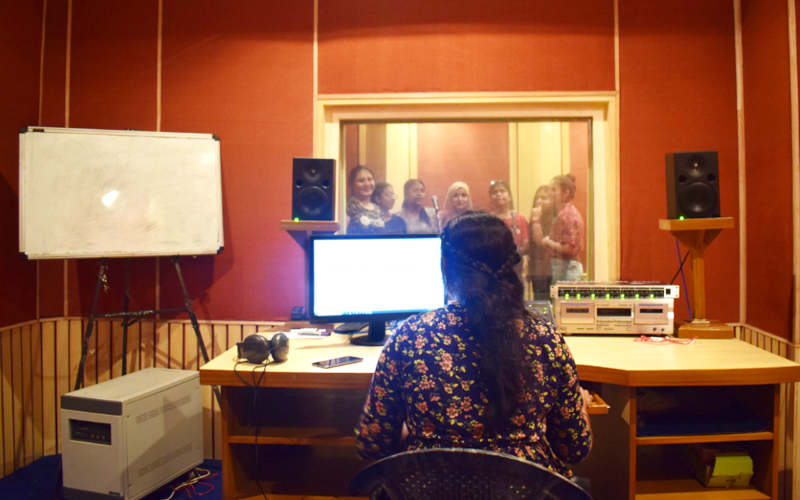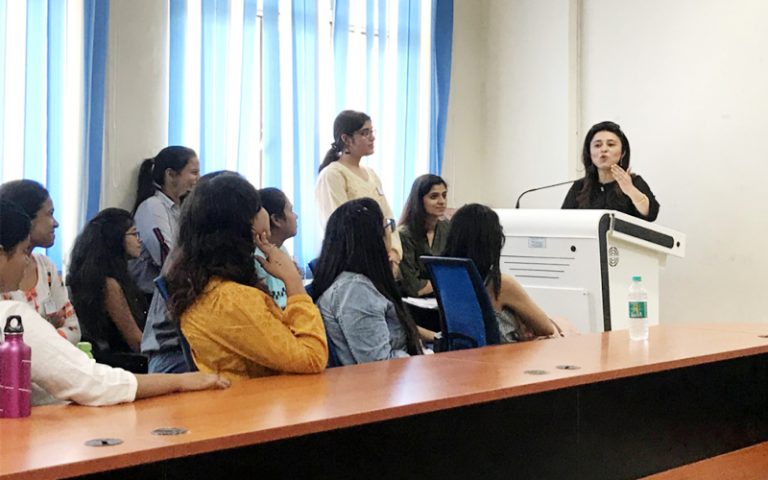B.A. (Hons.) Journalism
B.A. (Hons.) Journalism
UNDERGRADUATE COURSES
The course is being offered by the University of Delhi under the National Education Policy 2020 (https://www.dr.du.ac.in/files/UGCF-2022.pdf) guidelines. The new structure appreciates the need to harness full human potential and develop well-rounded and competent individuals by providing the right environment to enable access to inclusive, equitable and quality education. The characteristic features of the curriculum under the NEP are flexibility to the student in terms of choice of subjects, multiple entry and exit points, multi-disciplinary education by choosing major and minor subjects, and the provision of multilingualism that enables students to gain proficiency in their mother tongue.
About the course
Media and journalism are famously referred to as the fourth pillar of democracy. The construction of reality is thus one of the most vital functions of the media and media professionals. The rapid technological transformations at the turn of the millennium and the proliferation of digital platforms of communication have opened new pathways for practitioners of media to tell stories of critical issues concerning humanity. As local, national and global media industries proliferate and thrive, there is an ever-increasing demand of professionals in the media job market such as journalists, anchors, researchers, broadcasters, animators and photographers, to name just a few. Keeping in view this demand and the need to shape responsible professionals, and to give women an effective voice in media, the Department of Development Communication, Extension and Journalism (DCEJ) has been running the B.A. (Hons.) Journalism course since 2017. We are proud to say that our alumni are successfully pursuing higher education from reputed institutions are well placed in jobs. The well- qualified and experienced faculty in the department from varied fields of development communication, journalism, and mass communication contribute to the students’ growth trajectories. The teaching methodology incorporates lectures, workshops, field visits and interaction with eminent media personalities. The Department emphasizes independent research projects and extensive written and practice-based assignments by students. The college has a state-of-the-art audio studio for production of radio programs besides having equipment for photography and video production.
The students are encouraged to develop critical awareness of not only the values and purpose of journalism but also the political, social and economic contexts in which journalism operates. They are sensitized to the role and power of media as an agent of change and as a pillar of democracy.
Program specific eligibility:
Candidates must appear in CUET in any of the following subject combinations:
Combination I: English from List A + Any two subjects from List B1 + Any one subject from either List B1 or List B2
OR
Combination II: English from List A + SECTION III of CUET (General Test) Merit will be based on the best CUET score obtained from any of the above-mentioned combinations of subjects.
Note: As the weightage of the CUET Sections is not the same, appropriate proration will be done.
Programme Learning Outcomes:
During the entire programme, there are rigorous teaching and practice-based projects, to enable the students to understand the functions of media in the society and to uphold democracy as well as to develop good communication skills. The students learn the nuances of researching, reporting and writing a good copy. They also learn technical skills pertaining to layout and web designing, photography, radio and video programming and production. Besides this, the internships undertaken by students help them to undertake team work and hone their skills to make them ready for further education and work in the industry. After completing this undergraduate programme, the learners:
- Acquire fundamental knowledge of Journalism and related study areas.
- Empower themselves by communication, professional and life skills as well as leadership abilities.
- Equip themselves with ICTs including digital literacy.
- Acquire primary research skills; understand the importance of innovation, entrepreneurship and incubation abilities.
- Acquire the understanding of importance of cooperation and teamwork.
- Become ethically committed media professionals competent to undertake jobs in the industry as well as seek higher education opportunities.
For more details, the candidates may refer to syllabus (UGCF, 2022) available on the University of Delhi website at:
https://www.du.ac.in/uploads/24-11-2022-Artsfaculty.pdf (pp. 279-287).
Journalism students attending an outdoor photography workshop in Hauz Khas Fort, Delhi
A workshop in progress (left) and a visit to Quint studio (right)
Student recording podcast in the audio studio of the college (center) and Noted journalist Romana Isar sharing her experiences with students (bottom)
